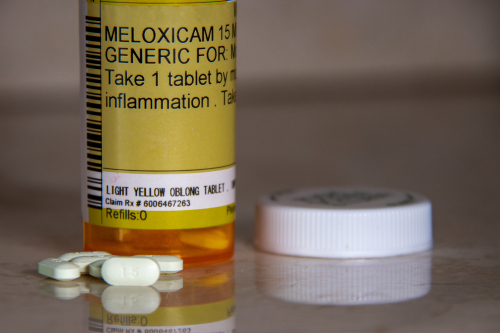How Does Heroin Psychologically Change You?
Long-term abuse of heroin and related opiates can cause irreversible damage to both a person’s body and mind. The psychological and emotional toll of substance abuse is problematic in and of itself. The psychological impact specific to heroin and opiates can result in what is commonly referred to as a narcotic haze. A “haze” is a term used to describe a state of euphoric bliss that occurs as a result of intoxication.
In the case of heroin and other potent opiates, there is a “peak” where the desirable and pleasurable effects are most strongly felt. This effect is not long-lasting and that is part of how these substances lead to abuse and addiction. Many are familiar with the phrase “chasing the dragon” or related concepts. The implication is that there is a desirable high that is felt early in substance abuse that quickly becomes unattainable. There is the inclination to use more of the substance in an attempt to reach this unattainable state which can lead to negative consequences including overdose, fueling the cycle of abuse, and addiction.
How Heroin Rewires Your Brain
When heroin enters the body it binds with opioid receptors. These receptors play a role in how the brain interprets information and determines what is rewarding. Heroin hijacks our reward system and alters the brain so that pleasure is increasingly derived from more and more opiates.
Our brain has opioid receptors for intended purposes. In certain situations, chemicals are released into the brain to help relieve symptoms of pain and discomfort. These are temporary sensations and these naturally occurring effects are not long-lasting. Heroin, on the other hand, produces a potent effect that is much more desirable to the brain than what occurs naturally. Unfortunately, as a result, the brain begins to crave these unnatural levels of satiation. The more encounters your brain has with synthetic opioids, the less the natural effects are pleasurable.
Over time, the brain becomes less likely to produce these naturally occurring responses and this results in it becoming more difficult to break the cycle of abuse and live a drug-free life. For this reason and more, medication-assisted therapy (MAT) can be a useful lifelong treatment for those who have had prolonged opiate addictions.
MAT Treatments for Heroin Addiction Recovery
There are currently three commonly used medications to treat opioid addiction are methadone, buprenorphine, and naltrexone. In certain circumstances, these medications are combined with other medications to create formulations that are believed to improve efficacy.
Methadone is a stand-by that has been used to treat opioid abuse for decades. Methadone is a synthetic opioid that can offset withdrawal symptoms without the euphoria that leads to a cycle of abuse. At high doses, methadone can block the effects of opiates from providing euphoria in case of relapse.
Methadone is typically packaged as:
- Dolophine (methadone hydrochloride) tablets
- Methadose (methadone hydrochloride) oral concentrate
Buprenorphine suppresses withdrawal symptoms associated with opioid dependence. Buprenorphine comes in a range of formulations chosen based on a case by case basis. Common formulations include:
- Suboxone (buprenorphine and naloxone)
- Bunavail (buprenorphine and naloxone)
- Cassipa (buprenorphine and naloxone)
- Probuphine (buprenorphine)
- Sublocade (buprenorphine extended‐release)
- Subutex (buprenorphine)
- Zubsolv (buprenorphine and naloxone)
These formulations can be packaged for sublingual use as a film or tablets or other methods.
Naltrexone is a MAT option that is not habit-forming and can be used for circumstances involving polysubstance abuse including treating individuals who have both an opiate addiction as well as an alcohol use disorder (AUD).
For those with opiate addictions, naltrexone works by blocking the opioid receptors so that they are unable to be activated in response to opiates entering the body. If someone takes opiates while also using naltrexone, they will not feel any of the euphoric effects associated with opioid abuse.
Naltrexone is administered in an injectable, long-acting formulation (commonly under the brand name Vivitrol). Vivitrol is administered as a once-a-month dose.
Reasons to Consider MAT for Opioid Addiction Recovery
Individuals who have struggled with long-term addiction have physical and cognitive complications that may be irreversible. In some instances, those with prolonged heroin and other opiate addictions have permanently depleted opioid receptors in their brain. This means that they are unable to naturally produce a sufficient chemical response to circumstances involving pain and discomfort. For these reasons and more, it can be necessary for someone with permanent opioid receptor damage to receive medication-assisted treatment that helps restore aspects of their cognitive function.
MAT has been proven effective for reducing the need for inpatient detox services. When integrated with a treatment plan, MAT allows addiction counselors to immediately begin work with clients to address therapeutic behavioral and mental health needs that address the core issues that lead to substance abuse and negative life decisions.
The Cognitive Effects of Prolonged Heroin Abuse
Heroin causes irreversible brain damage. This is because opioid abuse causes temporary respiratory suppression thereby depriving the brain of oxygen for periods of time. Repeated exposure to oxygen deprivation results in brain damage.
A person who has abused heroin or other opiates for a long period of time is likely to experience a range of disconcerting cognitive impairments. These can include:
- Increased risk for Alzheimer’s, dementia, and related degenerative diseases
- Decline in cognitive abilities including the ability to engage in abstract or deep thought
- Changes in personality and behavior
- Confusion
- Lack of judgment
- Difficulties relating to impulse control
- Anxiety
- Depression
- Decreased libido
- Chronic Fatigue Syndrome (CFS)
- Increased susceptibility to autoimmune disorders
- Paranoia
- Memory loss
Abusing heroin can change the physiological structure of a person’s brain. This, in turn, creates imbalances related to neurological and hormonal systems. Changes in the brain can result in loss of white matter which is important for the regulation of behavior, stress, and anxiety. Neurological imbalances can lead to problems that include:
- Infections
- Compromised immune system
- Risk of seizures and stroke
- Increase risk of Parkinson’s disease
It’s important to remember that not all is lost. Even a person who has had a long-term heroin addiction can find lasting recovery and build a fulfilling life. Keeping in mind the possibility of some permanent neurological and physiological impairments, top medical doctors and mental health counselors like those at Oasis Recovery can work with clients to create a plan of action with the potential to create a positive and healthy life in sobriety.











